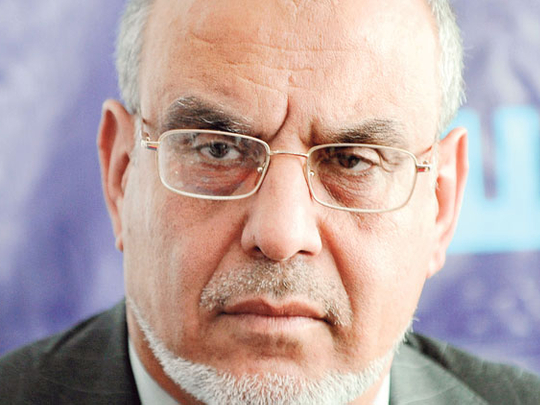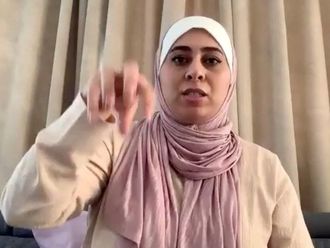
Tunis: Al Nahdha, the overwhelming winner of Tunisia's elections will most likely front its secretary general as the country's new prime minister. However, the new political powerhouse will endorse a non-member to be the next president of Tunisia.
The decision is in line with Al Nahdha's tendency to favour a parliamentarian political regime to replace the existing presidential regime, a move that can be enshrined in the new constitution to be written by the constituent assembly.
Hamadi Jebali, the secretary general of the Islamist party, on Wednesday claimed that he would be appointed in charge of the caretaker government.
"I am my party's candidate as the next prime minister," he said. "This is a normal move since the secretary general of the winning party in all democracies is chosen as the prime minister."
Jebali, a high profile figure within Al Nahdha, joined it in the early 1980s and served as the editor-in-chief of its newspaper Al Fajr in the 1990s.
He spent several years in prison, including a long period in solitary confinement.
With Al Nahdha securing a landslide win in the elections held on Sunday, the focus in Tunisia is now on the names of the people at the top positions within the constituent assembly, the prime minister and the president.
While the assembly speaker and the prime minister will be Al Nahdha members, the president will be most likely be either Mustafa Ben Jaafar, the secretary general of the Democratic Coalition for Action and Freedoms or Moncef Marzouki, the head of the Congress for the Republic, the party that has surprised the nation with a much better than expected performance that has now placed him in the second position behind Al Nahdha. Both men have already expressed interest in the presidential position.
However, Jebali did not rule out the name of Beji Caid Essebsi, the current prime minister whose wide experience and robust links with the international community are strong assets, as the next president.
The role of president will be largely ceremonial if the constituent assembly adopts the parliamentarian system. The name of the president is expected to be announced before November 10.
Jebali said that the strong popular support to Al Nahdha was recognition of its political platform and a reflection of the trust in its endeavours to serve the people and find solutions for all problems.
"The nation also wanted to reward Al Nahdha for the decades of suffering, pain, torture and exclusion," he said.
The party founded in 1981 was given the official licence in March 2011, two months after the downfall of the regime of Zine El Abidine Ben Ali.
"We would like to stress once more that we are not going to impose a constitution that would limit individual freedoms and rights, including freedom of religion and women's rights," Jebali said. "The constitution will be written by the deputies at the constituent assembly who represent the nation. It will reinforce freedoms and rights and will not curb them," he said.
Jebali said that the personal status law that has aborted polygamy would not be amended and there would be no move to impose the veil on women.
"Women are free to make their choice and there is no plan to send women back home instead of allowing them to work, as the opponents of Al Nahdha have been saying," he said. "The notion of women taking jobs is very significant and adds a value to the society."
The secretary general, in his statements to the Tunisian news agency, said that Al Nahdha would not move against tourism.
"It is an achievement that must not be targeted," he said, referring to claims that Al Nahdha would move against the sector to curb the sale of alcohol and ban women from swimming or frequenting public beaches.
"It makes no sense to target the vital sector of tourism. There are personal freedoms for foreigners and Tunisians," he said.
Jebali said that investors and businessmen should not be worried about Tunisia's new economic, financial and banking tendencies.
"There will not be a generalization of Islamic banks or the cancellation of the current financial system or the imposition of limits on the activities of businessmen. There is no reason to panic or fear. We will work on attracting more Arab and foreign investments," he said.












